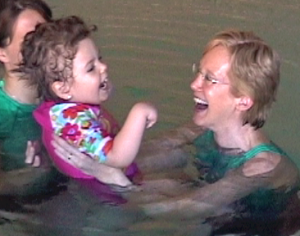International Paediatric Aquatic Techniques for Healthcare Professionals (Springs, South Africa 2019)
Quick links:
Accommodation and Directions (Springs 2019)
Essential Information and Prices (Springs 2019)
Registration Form (Springs 2019)
return to South Africa full course list (Springs and Cape Town)
October 17 – 20, 2019 (4 day course)
Location: Springs (near Johannesburg)
This EXCITING COURSE will expand your skills for working in the water with all the children in your paediatric programs.
Learn how to adapt techniques, including Halliwick, Bad Ragaz, Watsu, Sensory Integration, and Trunk/Core Stabilisation, into fun PLAY-BASED STRATEGIES.
During the four days of lectures and extensive pool labs, you will learn how to apply and blend these techniques into comprehensive and FUN programs.
Help children with all types of abilities and challenges achieve more in their recreational, therapeutic and daily life environments.
You’ll gain skills for improving your work with children with various challenges, including: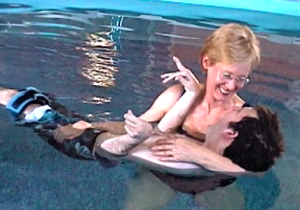
- Sensory Processing Disorder
- Autism Spectrum
- Cerebral Palsy
- ADHD
- Muscular Dystrophy
- Developmental Disabilities
- Down Syndrome
Case studies and videos will demonstrate aquatic techniques in use with a variety of children.
Come join us! The kids you work with will LOVE these techniques!!
Prerequisite
This course is open to healthcare professionals, including physiotherapists, occupational therapists, and biokineticists.
Course Instructor: Peggy Schoedinger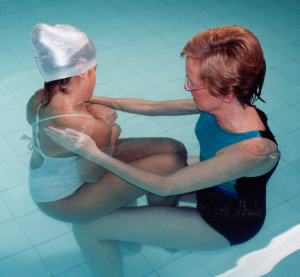
If you have not yet had the pleasure of taking one of her courses, you may like to read about Peggy.
Learning Objectives
At the completion of this course participants will be able to:
- Demonstrate an understanding of the benefits and precautions of passive and active aquatic techniques for children.
- Use and modify different positions and activities in the water to appropriately challenge each individual child by utilising turbulence, buoyancy and metacentric effects in creative ways.
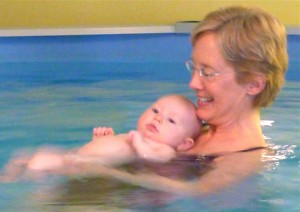 Adapt and modify techniques, including Halliwick, Bad Ragaz, Watsu, Sensory Integration, and Trunk/Core Stabilisation Techniques into play-based program strategies.
Adapt and modify techniques, including Halliwick, Bad Ragaz, Watsu, Sensory Integration, and Trunk/Core Stabilisation Techniques into play-based program strategies.
- Design aquatic programs for a wide range of children with special needs by incorporating and blending a variety of aquatic techniques into one-to-one sessions and group sessions.
- Work more effectively in the aquatic environment with children with various challenges, including Sensory Processing Disorder, Autism Spectrum, Cerebral Palsy, ADHD, Muscular Dystrophy, Developmental Disabilities, and Down Syndrome.
Course Schedule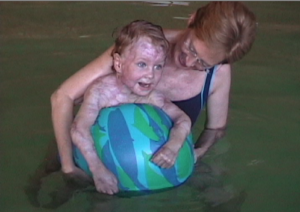
Day 1
8:00 Clinical Decision Making
Benefits of Active and Passive Aquatic Techniques
Sensory Processing and Sensory Integration
9:30 Pool Lab:
Sensory Integration
12:30 Lunch
1:30 Sensory Processing Videos and Discussion
2:30 Pool Lab:
Halliwick Concept
5:00 Completion
Day 2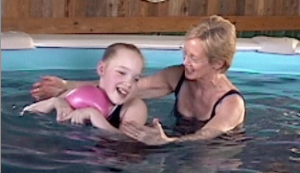
8:00 Pool Lab:
Halliwick Concept
12:30 Lunch
1:30 Physiological Effects of Immersion
Halliwick Group Video and Discussion
Halliwick Individual Session Videos and Discussion
2:30 Pool Lab:
Trunk/Core Stabilisation
Proximal Stability & Extremity Strengthening
Balance and Coordination
Developmental Sequence and Gait Activities
5:00 Completion
Day 3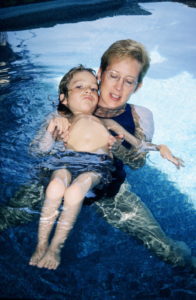
8:00 Pool Lab:
Bad Ragaz Adapted for Children
12:30 Lunch
1:30 Bad Ragaz Video and Discussion
2:30 Pool Lab:
Bad Ragaz Adapted for Children
5:00 Completion
Day 4
8:00 Pool Lab:
Watsu for Children
12:30 Lunch
1:30 Watsu Videos and Discussion
2:30 Pool Lab:
Watsu for Children
5:00 Completion
What to bring to your Paediatric Techniques course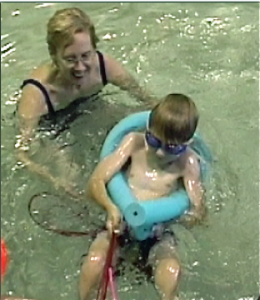
- Towels
- Swimming Costumes (2 or more recommended)
- Robe recommended for tea times
- Water Bottle
- Earplugs or Bostik Prestik
- Your own food for lunch and snacks. Tea and coffee are provided
- Kickboard, if you can bring one or two (larger ones are better)
- A mask and snorkel set if you have one
- Pen and paper
- A printed copy of the course manual from the PDF file emailed to you before the course, or electronic copy on your tablet or laptop
- Any special paediatric aquatic equipment/toys that you especially like, AND you purchased in SA.
Quick links:
Accommodation and Directions (Springs 2019)
Essential Information and Prices (Springs 2019)
Registration Form (Springs 2019)
return to South Africa full course list (Springs and Cape Town)

